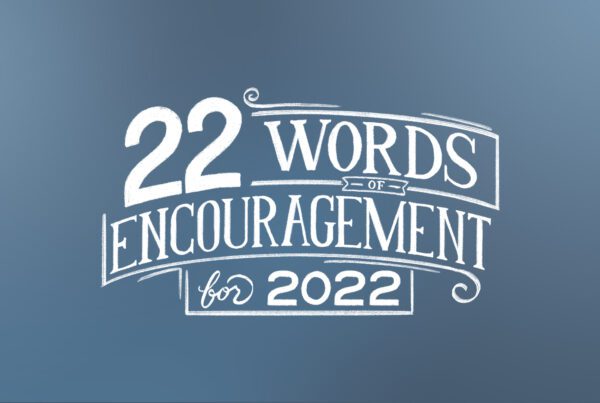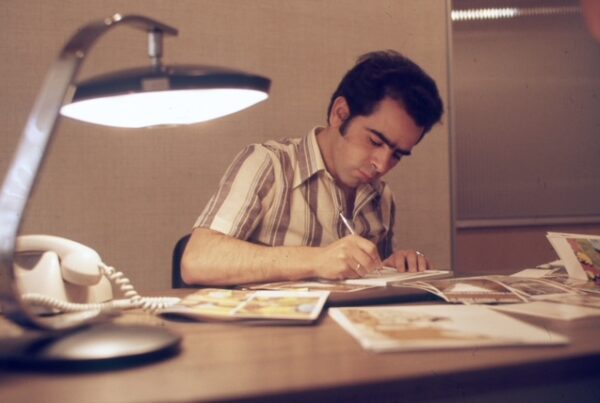The EHC team in the Republic of Moldova has discovered a powerful tool for Gospel innovation that could easily be overlooked. In response to the “new normal” of a COVID-19 world, our global offices are exploring new ways to share the Gospel. Some teams utilize the internet to share digital presentations of the Good News. Some are equipping frontline workers who have exclusive access to people needing medical care. And some are sharing the Gospel along with much-needed food and supplies.
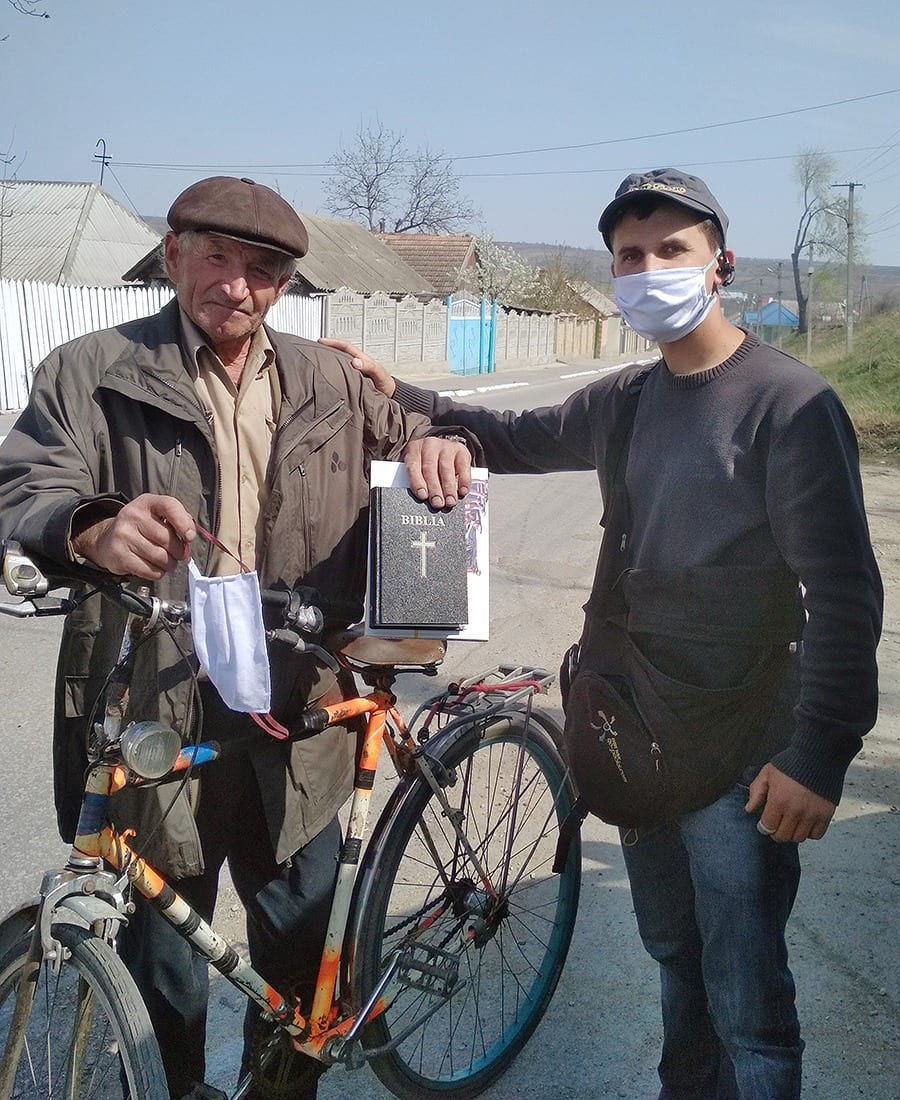
But there are contexts where these tools and approaches reach their limits — places like the villages in Moldova. Though digital messaging is useful in many parts of the world, the EHC Moldova team could not hope to reach some of the villages in their nation this way. The people who live in these villages simply don’t have computers or smart phones. The only way to reach them with the message of Jesus’ love is to go there in person (wearing masks to prevent the spread of the virus, of course).
The people in the village of Secareni, however, weren’t interested in receiving visitors — even visitors wearing masks. When they saw the team coming, they sent a message to the mayor: “There are some people in our village who may have COVID-19 and be a danger!” So the mayor and some policemen met our team and politely asked them to move on. “We know that your message is very good for the people and that you would like to help us,” the mayor said, “but come another time.”
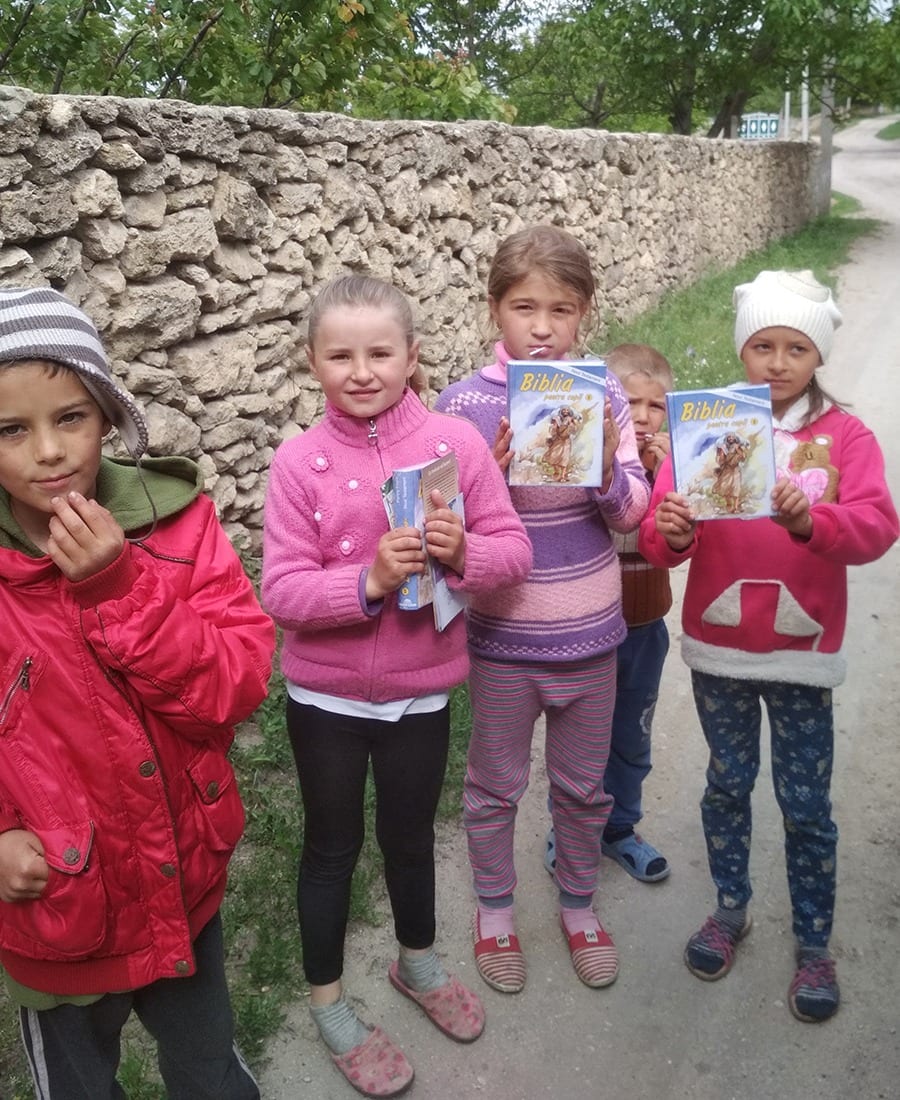
“There are people, in these times, who are very open to the Gospel. They need God because nobody — not the medical personnel nor the government — can give them hope, peace, and comfort. And now they begin to seek God!”
— Nicolae Sili, Every Home Ministry Director
But there are contexts where these tools and approaches reach their limits — places like the villages in Moldova. Though digital messaging is useful in many parts of the world, the EHC Moldova team could not hope to reach some of the villages in their nation this way. The people who live in these villages simply don’t have computers or smart phones. The only way to reach them with the message of Jesus’ love is to go there in person (wearing masks to prevent the spread of the virus, of course).
The people in the village of Secareni, however, weren’t interested in receiving visitors — even visitors wearing masks. When they saw the team coming, they sent a message to the mayor: “There are some people in our village who may have COVID-19 and be a danger!” So the mayor and some policemen met our team and politely asked them to move on. “We know that your message is very good for the people and that you would like to help us,” the mayor said, “but come another time.”
The EHC team honored this request and decided to move on. The wisdom of this decision shouldn’t be missed. The team was sensitive to the people’s feelings, not wanting to further distress anyone during an already trying time. And because they didn’t argue the point, they didn’t burn any bridges. They would be welcomed to return another day.
It’s easy to assume that the whole world is like Secareni, closed to interaction, unwilling to hear the message. But this is not the case. As Jesus told us, “the harvest is plentiful” (Matthew 9:37) even in the midst of a global pandemic. There are still places where people will invite the Gospel into their homes and chase believers down the road to receive a Bible. The important thing is to recognize when this is the case — and when it isn’t.
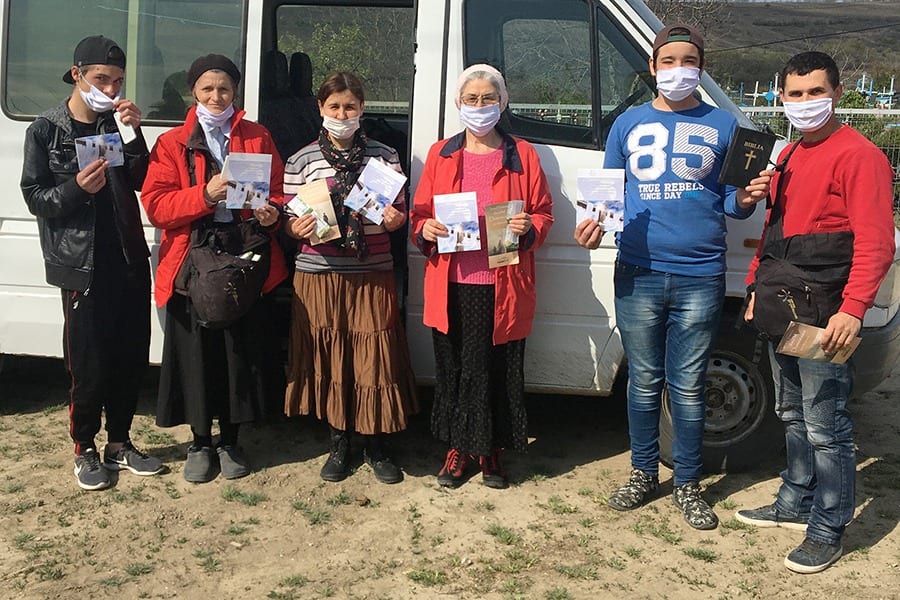
The powerful tool the Moldova team discovered is as simple as it is profound: sensitivity toward those we reach. This was needed before the pandemic, of course, but it will be even more important moving forward.
COVID-19 has elicited a wide range of responses from people. Some feel deeply afraid. Others are completely unconcerned. In the midst of such polarizing perspectives, it’s imperative that Christians tread lightly so that we do not ruin our witness. Whatever our own views about this issue may be, we need to have the attitude of the Apostle Paul who became “all things to all people” so that he might reach as many as possible with the life-saving message of the Gospel (1 Corinthians 9:22).
This is what the team in Moldova did when they were sensitive to the feelings of the people in Secareni and made themselves available to the people in Dragusenii. This sensitivity led to a harvest in Dragusenii, and it may still lead to a harvest in Secareni.
“There are people, in these times, who are very open to the Gospel,” Nicolae says. “They need God because nobody — not the medical personnel nor the government — can give them hope, peace, and comfort. And now they begin to seek God!”
Takeaway
Rival sports teams. Rival political parties. Rival opinions about COVID-19. One of the defining characteristics of our culture is that we are a highly opinionated and deeply polarized society. Our personal views are important to us, and to our credit, we are willing to fight for what we believe in.
But what is the use of voicing our thoughts on the latest controversy if the way we do so makes it that much harder for someone to hear the Gospel from us? We can’t allow our personal convictions to get in the way of the message we are called to share.
So let’s pray for the Spirit to give us a holy sensitivity to others, valuing their feelings in a way that demonstrates our love for them — and that keeps the door open for them to hear about Jesus’ love for them, too.

